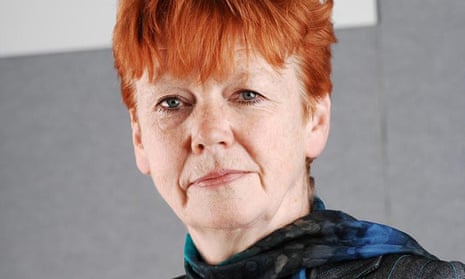At least 16 suspected domestic abuse killings in the UK have been identified by campaigners since the Covid-19 lockdown restrictions were imposed, far higher than the average rate for the time of year, it has emerged.
Karen Ingala Smith, the founder of Counting Dead Women, a pioneering project that records the killing of women by men in the UK, has identified at least 16 killings between 23 March and 12 April, including those of children.
Looking at the same period over the last 10 years, Smith’s data records an average of five deaths.
Her findings for 2020, which are collated from internet searches and people contacting over social media, were raised during evidence to the home affairs select ommittee on Wednesday.
Dame Vera Baird QC, the victims’ commissioner for England and Wales, told MPs at the remote session: “Counting Dead Women has got to a total of 16 domestic abuse killings in the last three weeks. We usually say there are two a week, that looks to me like five a week, that’s the size of this crisis.”
A number of domestic abuse charities and campaigners have reported a surge in calls to helplines and online services since the lockdown conditions were imposed, reflecting experiences in other countries.
Smith, who is also chief executive of a domestic abuse charity, said: “I don’t believe coronavirus creates violent men. What we’re seeing is a window into the levels of abuse that women live with all the time. Coronavirus may exacerbate triggers, though I might prefer to call them excuses. Lockdown may restrict some women’s access to support or escape and it may even curtail measures some men take to keep their own violence under control.
“We have to be cautious about how we talk about increases in men killing women. Over the last 10 years, in the UK, a woman has been killed by a man every three days, by a partner or ex-partner, every four days. So if this was averaged out, we might expect to see seven women killed in 21 days. In reality, there are always times when the numbers are higher or lower.
“But we can say that the number of women killed by men over the first three weeks since lockdown is the highest it’s been for at least 11 years and is double that of an average 21 days over the last 10 years.”
Smith’s research shows at least seven people have been allegedly killed by partners or former partners during the period, while three people have been allegedly killed by their father.
The committee also heard evidence from Nicole Jacobs, the domestic abuse commissioner for England and Wales. She said time limits on investigating crimes would need to be relaxed to allow survivors of violence in the home to report perpetrators once the coronavirus restrictions were eased.
“I have heard from police about the need to extend the time by which people can report crimes. There are people who are experiencing abuse right now who aren’t able to call the police because it wouldn’t be safe for them,” said Jacobs.
“But they may well want to report a crime later so we need to allow for some extension to what the normal timescales would be for that kind of thing.”
Crimes that are “summary only”, which means that they can only be tried at a magistrates court, including common assault and harassment, must be prosecuted within six months.
Jacobs said services must prepare for the “inevitable surge” of domestic abuse victims seeking support when the lockdown lifts.
She said there were concerns that some of the millions of pounds of government funding announced for the charity sector may struggle to reach small local charities that supported specific groups.
“We need to allow those charities to quickly and very simply bid in and get the funds they need to sustain what they are doing, but also plan for the inevitable surge that we will have.“There will be people that are waiting and trying to survive every day and then will access support as quickly as they can when some of the lockdown is lifted,” she told MPs.
